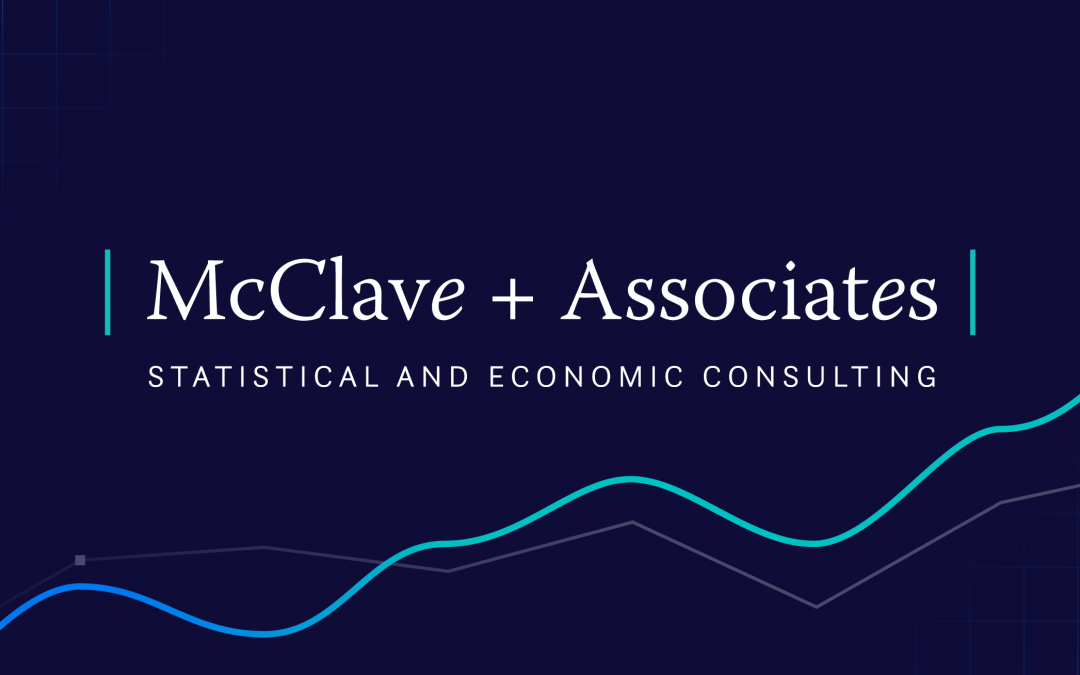
by info-services@infotechinc.com | Dec 30, 2020 | Events
Emerging Antitrust Issues Amid the COVID-19 Pandemic: What Companies and Financial Institutions Must Know and Do
Tuesday, January 19, 2021
12:00 pm – 2:00 pm (ET)
Key Topics:
- Enforcement Priority Changes Due to COVID-19
- Emerging Antitrust Issues
- LIBOR Transition
- Risk Management Strategies
- Best Compliance Practices
- Outlook
Speakers:

Dr. Robert Kneuper
Expert Economist/Expert Consultant
Infotech Consulting
Vikram Kapoor
Senior Managing Director
Ankura Consulting Group, LLC
Mahesh Parlikad
Partner
Jones Day
Aaron Healey
Partner
Jones Day
Registration:
Tuesday, January 19, 2021
12:00 pm – 2:00 pm (ET)
First 30 seats FREE – REGISTER HERE
Can’t attend? Register anyway and you will receive a recording of the webinar.
For more information, please visit The Knowledge Group website, call 1.800.578.4370 or email info@theknowledgegroup.org.

by info-services@infotechinc.com | Dec 10, 2020 | Blog
Defendants are defendants, but plaintiffs can wear many hats — direct class plaintiff, indirect class plaintiff, opt-out, end-payor plaintiffs — each presenting their own version of their litigation story. In our practice, the Infotech Consulting team has seen a growing number of indirect class action cases, despite the complicated legal precedent they face.
Part and parcel of navigating this complicated legal landscape in the indirect class actions is providing reliable and robust expert economic and econometric analyses in the face of discovery issues and limitations. While sales data for a direct purchaser — one who buys directly from an alleged antitrust conspirator — is typically produced in discovery, will a discovery production include complete purchase records of indirect plaintiffs who buy the product further down the sales chain? If transaction data for indirect purchasers is incomplete, does the production include a sufficient sample to support a reliable analysis? If there is a simultaneous direct class action, is there coordination among the parties to avoid inconsistencies in analyses?
Indirect Action: A Brief History
 Section 4 of the Clayton Act authorizes damages suits in federal court by “any person who shall be injured in his business or property by reason of anything forbidden in the antitrust laws.” (15 U.S.C. sec. 7; 15(a)). However, in the seminal Illinois Brick case, the US Supreme Court essentially limited recovery to those plaintiffs who purchased directly from the defendants. (Illinois Brick Co. v. Illinois, 431 US 720 (1977)).
Section 4 of the Clayton Act authorizes damages suits in federal court by “any person who shall be injured in his business or property by reason of anything forbidden in the antitrust laws.” (15 U.S.C. sec. 7; 15(a)). However, in the seminal Illinois Brick case, the US Supreme Court essentially limited recovery to those plaintiffs who purchased directly from the defendants. (Illinois Brick Co. v. Illinois, 431 US 720 (1977)).
Embedded in matters related to judicial economy and concerns regarding duplicative recovery, the Court held that indirect purchasers are barred from pursuing damages under federal antitrust law. This landmark decision shut the door on potentially injured purchasers while allowing direct purchasers to recover the full amount of overcharges even if they passed some or all of those overcharges on to their customers. So how do these plaintiffs recover damages in federal court?
Thanks to Illinois Brick repealer statutes, many states have secured standing for indirect purchasers. These states, numbering around 30 including the District of Columbia, have enacted legislation that permits indirect purchasers to initiate antitrust actions in state or federal court under state antitrust laws.
The Supreme Court most recently weighed in on the indirect purchaser issue in its 2019 decision in Apple v. Pepper, in which the Court eschewed overturning Illinois Brick but arguably expanded the definition of “direct purchasers” permitted to pursue claims under federal antitrust laws. By defining consumers who purchased third party apps through Apple as direct purchasers, the Court may have created an opportunity for purchasers in a two-sided market to circumvent Illinois Brick in certain situations. A whole new category of “direct purchasers” may have been created: those consumers who make purchases using platform services such as ticket brokers or online platform sellers. Particularly noteworthy in cases where platform services are involved, the Court specifically ruled that the form of the upstream arrangement between the manufacturer and the allegedly “monopolistic retailer” — e.g., who sets the retail price — is not relevant to the direct purchaser inquiry.
Building a Robust Econometric Analysis for Indirects
Since a robust empirical analysis is critical to certifying a class of indirect purchasers and ultimately demonstrating impact and damages, data is key. Defendants’ sales data typically is used to estimate the overcharges incurred by direct purchasers, a critical first step in the indirect plaintiffs’ impact and damages analyses. But that data rarely includes sufficient (or any) indirect purchaser end-user information: once Defendant sells Widget X to its distributor (the direct purchaser), Defendant has no record of Widget X’s sale to our Indirect Plaintiff.
Further complicating the matter, there may be multiple layers of indirect purchasers in an industry: distributors, retailers, consumers, and, in the increasingly common pharmaceutical cases, third party payors (insurance companies). Securing transaction data that includes records of sales between the direct purchasers and indirect plaintiffs is essential to an empirical analysis of the indirects’ claims, but our experience has been that obtaining all records of all indirect purchases is uncommon.
In that event, a statistically valid sample of direct-to-indirect records can form the basis for the econometric analysis, bolstered by documentary and other evidence. Identification of large indirect purchasers who maintain their own complete transaction records also may yield supporting data for the expert analysis.
 The more-data-is-better rule of thumb puts indirect plaintiffs in a better position to defeat challenges such as ascertainability, particularly with a robust empirical analysis supported by ample documentary evidence of pass through and widespread impact. Access to and the ability to fully understand the purchase transactions of the named indirect plaintiffs can help to avoid additional roadblocks to class certification.
The more-data-is-better rule of thumb puts indirect plaintiffs in a better position to defeat challenges such as ascertainability, particularly with a robust empirical analysis supported by ample documentary evidence of pass through and widespread impact. Access to and the ability to fully understand the purchase transactions of the named indirect plaintiffs can help to avoid additional roadblocks to class certification.
Regardless of the source of the data, early access to this data, and leaving sufficient time for follow-up with the producing parties and analysis is critical. Often, coordination with direct plaintiffs in parallel litigation can present opportunities to share data, data processing and even analysis. Since, again, the first step of the indirect plaintiff’s expert analysis often is the estimation of an overcharge to the direct purchasers, some coordination with the direct plaintiff’s expert to avoid unnecessary inconsistencies can prevent experts being pitted against each other.
While the production of data from defendants, from direct purchasers, and from indirect plaintiffs themselves and the coordination of various expert analyses can seem daunting, the importance of strategic and timely planning in an indirect case is elevated given the complicated and multi pronged analysis necessary to support class certification.
by info-services@infotechinc.com | Nov 23, 2020 | Press
Infotech Systems and Infotech Consulting Support the Recovery of $101.35 Million
GAINESVILLE, Fla.–(BUSINESS WIRE)–Infotech, a leader in infrastructure construction software solutions and expert statistical and econometric consulting services, announced today that its two businesses supported a record-breaking antitrust settlement in West Virginia which recovered taxpayer dollars totaling $101.35 million.
In the late 1970s, Infotech developed computerized techniques to assess fairness in competitive markets. These same techniques were used to support the West Virginia Department of Transportation (WVDOT) to assess bidding activity among a small group of contractors when price fixing was suspected. Through Infotech’s DOT agency services and Infotech Consulting’s expert statistical analysis, the company was able to support the state of West Virginia in reaching this settlement, which was the largest single-state antitrust settlement in West Virginia history.
“Price fixing raises prices at the taxpayer’s expense; discovering and proving this activity is at our core,” Will McClave said, Infotech Systems President. “Infotech has been building and using software to detect collusion since our first major antitrust case in 1981, which resulted in a then-record $30 million in settlements for a bid-rigging case. Throughout our history, our goal has been to pursue truth in the data and ensure taxpayer dollars are spent responsibly.”
One way state agencies can support a fair bidding process is through electronic bidding. WVDOT adopted Infotech’s secure online bidding service, Bidx.com®, in 2009.
“Many of you may remember back in 2013 when I instituted the state’s new competitive bidding policy for how outside counsel are paid,” West Virginia Attorney General Patrick Morrisey said. “Well, we now have saved over $30 million through that policy. Why? Because the state gets the benefit of competitive bidding. Over $20 million saved on this case alone. That’s an awesome thing. That means we have good government, we have competition and we’re actually saving taxpayer money.”
“Our settlement will go a long way to restore competition and recoup road funds to the benefit of every taxpayer who pays for and drives West Virginia’s roads,” Morrisey continued. “We can never afford to allow an unlawful monopoly to victimize West Virginia and maximize its profits on the backs of state taxpayers, especially when every dollar is needed to pave our roads and compete effectively with other states for business and tourism.”
To learn more about Infotech’s online bidding platforms, visit https://www.infotechinc.com/bidding. To learn more about Infotech Consulting’s expert statistical and econometric consulting services, visit infotechconsulting.com. To learn more about the settlement, visit the official West Virginia announcement.
About Infotech
Info Tech, Inc., DBA Infotech (Infotech) bridges innovation and integrity by developing cutting-edge digital solutions for the infrastructure construction industry and providing expert statistical and econometric consulting services across multiple industries. Infotech’s two core businesses, Infotech Systems and Infotech Consulting, use technology and data to bring transparency, integrity and efficiency to the people we serve. Informed by DOT relationships and decades of experience, Infotech Systems develops software solutions that bridge the gaps between owners, consultants, contractors, and other project stakeholders. Infotech is the developer of Appia®, Bid Express®, and Doc Express®, as well as the official contractor for AASHTOWare Project™. For more information on our SaaS offerings, visit infotechinc.com. For more information about our expert consulting services, visit infotechconsulting.com.

by info-services@infotechinc.com | Nov 23, 2020 | Blog

Brooke Harmer

Michael Smith
Recently, we both had the pleasure of attending AAI’s 14th Annual Private Antitrust Enforcement Conference. As young professionals who entered a field heavily focused on antitrust litigation earlier this year, our first AAI conference was a very informative experience. Despite this event transitioning online due to the COVID-19 pandemic, it truly seemed like the show carried on without missing a beat, and the communal feel surrounding this conference was undeterred by this transition.
This conference had a clear emphasis on diversity in the workplace and the strides we can take to achieve a representative workforce. An example that was used was “The Intel Rule,” which refers to Intel’s commitment to only work with outside counsel having at least 21% of their U.S. equity partners as women and at least 10% of their equity partners as underrepresented minorities. Intel believes if they “want to shape the future of technology, [their] workforce must be representative of that future.” This concept is applicable to any industry, including our own, in that if we are going to solve complex problems, we need diverse perspectives. By having a more diverse workforce, we are also able to look at our cases in different lights to find more creative solutions and better represent the people who our cases affect.
In the session titled “Leading Voices in Private Enforcement: Insights on Bringing and Litigating Successful Antitrust Cases,” which was moderated by Judith Zahid with panelists Dena Sharp, Eric Cramer, Dan Gustafson, and Kellie Lerner, the discussion on what makes a good expert was also enlightening and especially relevant to us at Infotech. As an expert, it is essential to be able to explain complex topics in a way that is simple to understand. This concept has been reflected at every level of our team through all phases of our projects. Each person on our team has specialized skills, so to be able to make a complicated topic understandable for every person on the team ensures that a jury will likely also be able to follow our logic. Additionally, good experts always prioritize honesty. This is a core Infotech Consulting value, and it comes naturally for us. We represent both plaintiffs and defendants, allowing the data to tell its truth, and we choose to work on cases in which we honor that truth. For this reason, we select our cases just as much as they select us.
Within the same session, there was a segment discussing advice for up and coming associates. Although we are not associates at a law firm, much of this advice was still very relevant to us as recent hires. When starting out in a new field full of so many complex and fascinating topics, it is easy to get intimidated by how much you may not know. However, the antidote to this intimidation is the privilege of being able to surround ourselves with a supportive team that gives us confidence. During the discussion, the following idea was raised: “ When working with a new associate, start with the idea that this is the next star; if you have hired them, you must already believe they can be.” Another related concept was stated plain and simply: “It is okay to lose. It is okay to make mistakes.” These are sentiments that the Infotech Consulting team strongly echoes, and it has been clearly showcased in the way we have been treated in our first few months on the job. Although we can only hope to one day reach star status, being able to immerse ourselves in an uplifting environment makes it even easier to find engagement with and passion for our work.
Speaking of passion, this conference clearly had a lot of it. It is evident that the AAI community has a purpose far greater than itself: promoting the well-being of fair, competitive business practices. It is refreshing (to say the least) to be able to work in a field in which we can positively affect social outcomes through our efforts, and it makes waking up in the morning all the more motivating. The sense of camaraderie surrounding this conference in support of the greater good really affirmed to us a sense of belonging.
The communal feel of the AAI extends beyond the boundaries of work. Some of the most memorable moments of the conference came from honoring the life of Hollis Salzman. Although we did not have the pleasure of knowing Hollis, it is evident that she left a positive impact on so many people, including our colleagues at Infotech Consulting who speak so highly of her. If we left the 14th Annual Private Antitrust Enforcement Conference knowing one thing was certain, it was that this impact will surely carry on for many years to come.
by info-services@infotechinc.com | Oct 31, 2020 | Case Updates
Infotech houses two distinct operating businesses, Systems and Consulting. However, both businesses were born out of one request by the Florida Attorney General 42 years ago: can computerized statistical techniques be developed to detect bid rigging in public procurement? The answer was yes, and Systems has been working with individual states ever since to make the highway construction industry more efficient and competitive while Consulting has been successfully helping states estimate damages when bid rigging is detected. This collaboration between businesses is still making an impact today, most recently in West Virginia.
In 2014, the Assistant Director of the West Virginia Department of Highways felt there were significant issues in their bidding process. After a preliminary analysis in 2015, Infotech began a thorough analysis of West Virginia AASHTOWare Project BAMS/DSS™ data going back to 1996. Infotech also obtained comparison data with cooperation from surrounding states including Ohio, Kentucky, Virginia, Pennsylvania and Maryland.
Data revealed that certain parts of the state were not competitive and, as a result, the West Virginia Attorney General and the Department of Transportation filed suit in 2017 against big name asphalt companies. Defendants attacked the reliability of the BAMS/DSS data and the subsequent analysis, but expert statistical consultant and Infotech co-founder Dr. Jim McClave, and Jeff Derrer, Infotech Senior Business Analyst, vigorously defended the data through multiple depositions and held steadfast in their knowledge that the data could only be explained by collusive behavior. After years of litigation, the case settled for $103,500,000, the largest antitrust settlement in West Virginia history. This was a victory for West Virginia and for both businesses of Infotech.
State of West Virginia, ex rel. Patrick Morrisey, Attorney General and Paul A. Mattox, Jr. in his Official Capacity as Secretary of Transportation and Commissioner of Highways, West Virginia Department of Transportation, v. CRH Plc, Oldcastle Inc, et al. Case No. 17-C-41, Cir. Ct of Kanawha County, WV (2017)




 Section 4 of the Clayton Act authorizes damages suits in federal court by “any person who shall be injured in his business or property by reason of anything forbidden in the antitrust laws.” (15 U.S.C. sec. 7; 15(a)). However, in the seminal
Section 4 of the Clayton Act authorizes damages suits in federal court by “any person who shall be injured in his business or property by reason of anything forbidden in the antitrust laws.” (15 U.S.C. sec. 7; 15(a)). However, in the seminal  The more-data-is-better rule of thumb puts indirect plaintiffs in a better position to defeat challenges such as ascertainability, particularly with a robust empirical analysis supported by ample documentary evidence of pass through and widespread impact. Access to and the ability to fully understand the purchase transactions of the named indirect plaintiffs can help to avoid additional roadblocks to class certification.
The more-data-is-better rule of thumb puts indirect plaintiffs in a better position to defeat challenges such as ascertainability, particularly with a robust empirical analysis supported by ample documentary evidence of pass through and widespread impact. Access to and the ability to fully understand the purchase transactions of the named indirect plaintiffs can help to avoid additional roadblocks to class certification. 
